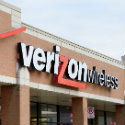
Verizon is adding more incentives to tempt consumers to sign up for its fixed wireless Internet service, dubbed 5G Home, as it expands the service into additional locations. Based on new survey data, the effort could reflect the operator's ultimate desire to bundle the sale of its mobile and fixed wireless products.
Verizon on Tuesday said it would shell out up to $500 to help customers pay the early termination fees they may face if they decide to switch to Verizon's 5G Home from another provider. The offer is intended to allow customers to "leave the Internet of the past in the past," according to Verizon.
But that's not the only sweetener Verizon is offering for its 5G Home service. The operator also said that new customers can get a free Samsung Chromebook 4, too, as well as a streaming TV device coupled with a free year of the Discovery+ streaming service.
Verizon is pushing the promotions amid an expansion of its 5G Home footprint. The operator said it's expanding the service into Riverside, California, on April 22, and Memphis and San Antonio on May 6. The service is now available in roughly three dozen US cities.
5G Home is "ideal for people working remotely, schooling at home or streaming their favorite shows or movies," according to Verizon.
By the end of 2023, Verizon has said it expects to cover around 30 million households with fixed wireless Internet services – mostly over 5G – and that the business overall will generate around $1 billion in revenues. 5G Home costs $50 per month for Verizon mobile customers and $70 for those without Verizon's mobile service. Customers can expect download speeds of around 300 Mbit/s.
The promise of bundling
New survey data from the financial analysts at Cowen may shed some light on why Verizon appears so keen to generate interest in 5G Home. The analysts polled roughly 1,000 US consumers earlier this month and found that "being a wireless customer ... only modestly helped boost wireline adoption. However, for AT&T/Verizon subscribers that do take the respective carrier's wireline broadband, they have a far higher propensity to also bundle wireless."
The firm found that Verizon generally commanded a 49% share in the markets where it offers its wired FiOS broadband Internet service. In those same markets, the carrier attracted around 48% of all wireless customers.
However, across the entire country, Verizon netted around 33% of all wireless customers. But that figure jumped to 50% among the customers who also subscribed to Verizon's in-home broadband service.
Their analysis: Verizon has a good chance to gain new mobile customers if it can also get them onto its in-home broadband Internet service.
Related posts:
— Mike Dano, Editorial Director, 5G & Mobile Strategies, Light Reading | @mikeddano
About the Author(s)
You May Also Like




_International_Software_Products.jpeg?width=300&auto=webp&quality=80&disable=upscale)







